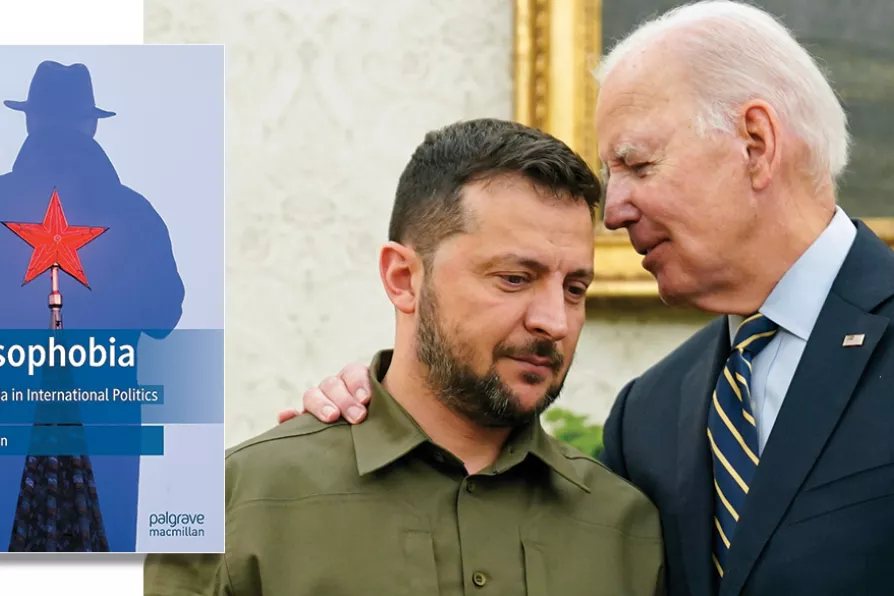TONY BURKE speaks to Gambian kora player SUNTOU SUSSO

 WAR TETE-A-TETE: Vlodymyr Zelensky and Joe Biden last Saturday
WAR TETE-A-TETE: Vlodymyr Zelensky and Joe Biden last Saturday
Russophobia: propaganda in international politics
by Glenn Diesen
Palgrave Macmillan £89.99.
THIS is an exceptionally important book. It exposes the Nato campaign, led by the British and US governments, to whip up hatred of Russia.
In 2015, the British government launched the Integrity Initiative, “dedicated to revealing and combating propaganda and disinformation.” According to its website 95 per cent of its funding comes from the government, the US State Department, Nato and Facebook.
The Initiative was largely aimed at Russia, although it could also target domestic dissent. In December 2018, the Sunday Mail reported that the Initiative was targeting the Labour Party’s leader Jeremy Corbyn. That is, the government was using public funds to attack the official opposition.
The US government cynically used vaccines for propaganda purposes. The US Department of Health and Human Services’ annual report revealed that the government had tried to persuade the Brazilian government to reject Russia’s Sputnik V vaccine, despite the Bolsonaro government’s appalling failure to provide enough vaccines, which led to the deaths of 605,000 of its citizens.

German Chancellor Friedrich Merz is pouring €11.5bn into the Kiev swamp, blocking Trump’s peace plan, and pushing Nato right up to Russia’s borders – no matter if it costs hundreds of thousands of lives, warns SEVIM DAGDELEN

In Washington, the willingness to accept an open war with Russia is growing — at Europe’s expense. While Nato states are being drawn into confrontation, Europe risks becoming the battlefield of a potential world war, warns SEVIM DAGDELEN

Washington plays innocent bystander while pouring weapons and intelligence into Ukraine, just as it enables the Gaza genocide — but every US escalation leaves Ukraine weaker than the neutrality deal rejected in 2022, argue MEDEA BENJAMIN and NICOLAS JS DAVIES











